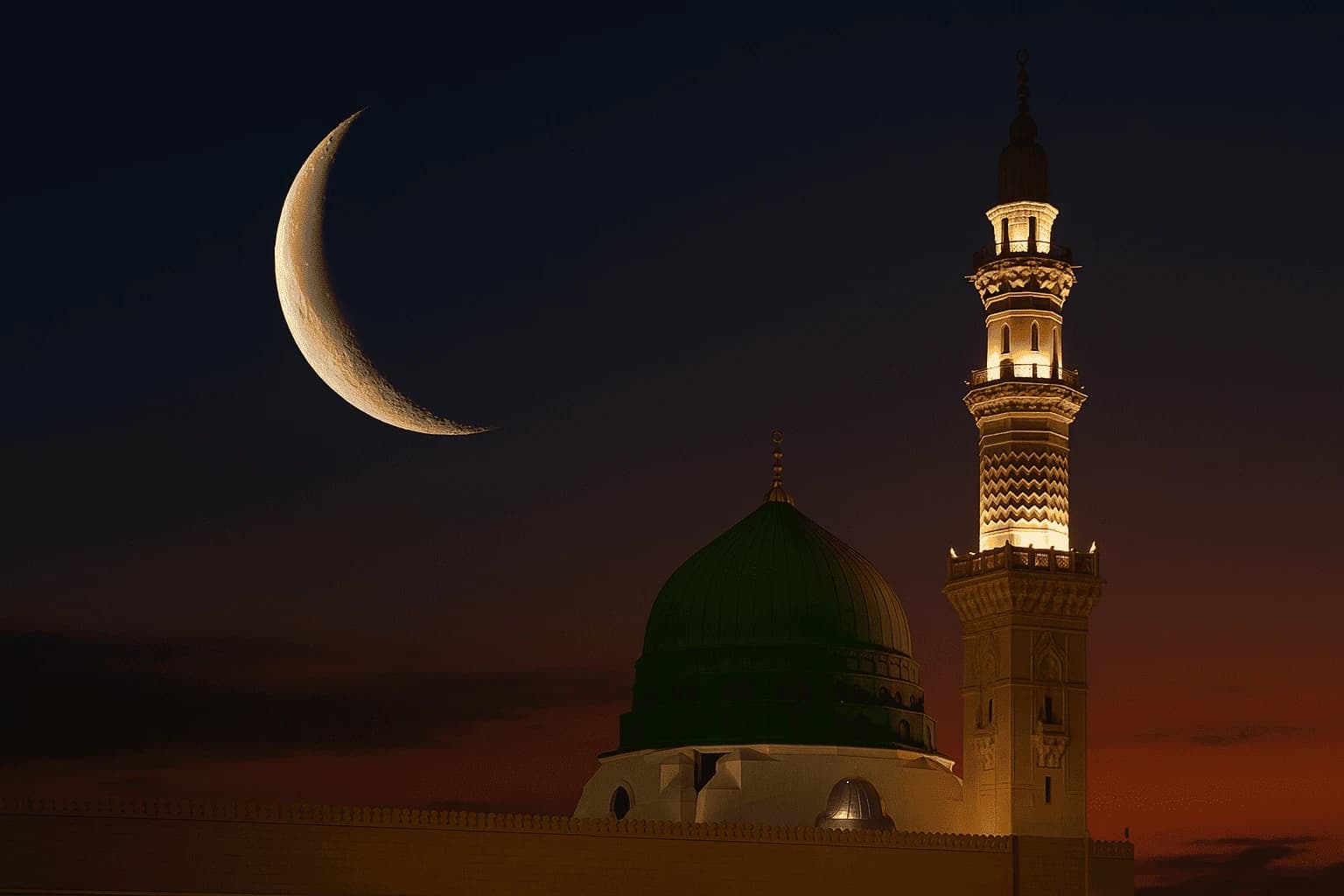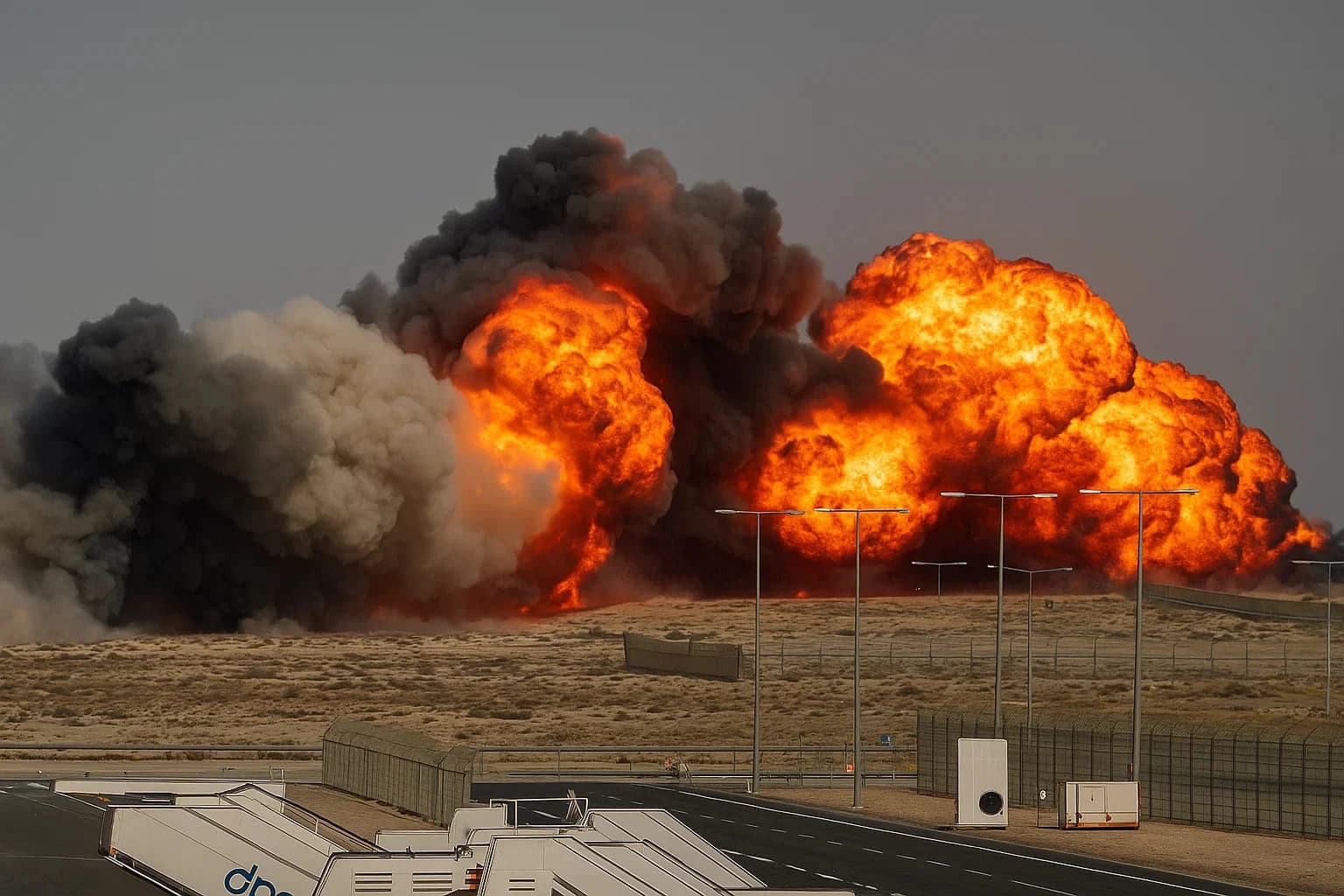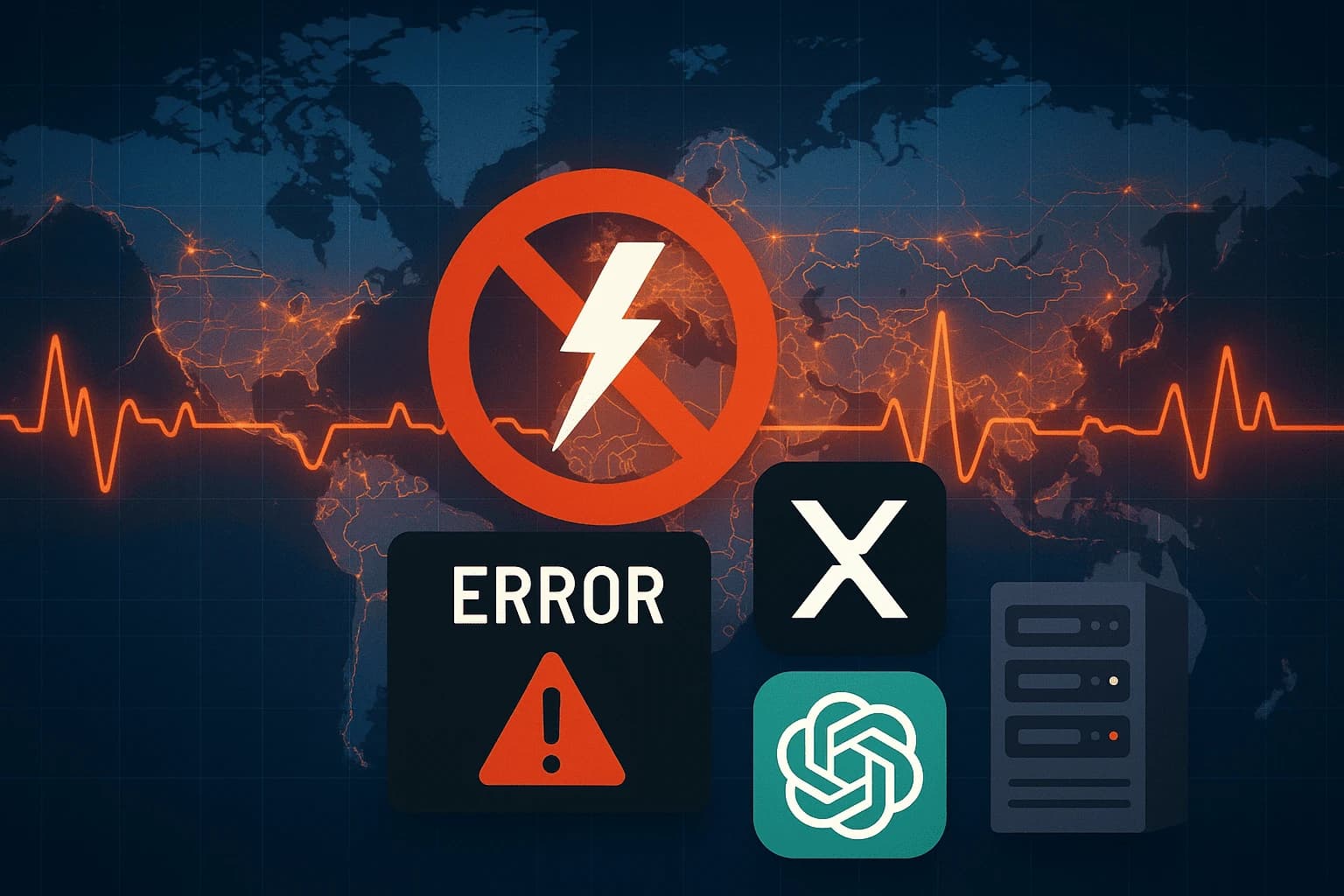© 2025 Roz UpdatesbyTETRA SEVEN

* All product/brand names, logos, and trademarks are property of their respective owners.
Eid Milad un Nabi is one of the most cherished Islamic events in Pakistan, marking the birth of the Holy Prophet Muhammad (PBUH). Every year, Muslims across the country wait for the official announcement of the Rabi ul Awal moon to determine the exact date of this spiritual celebration. In 2025, however, things took a slight twist that left many people confused and curious.
Initially, several news platforms and even astronomical experts predicted that the Rabi ul Awal moon would be sighted on Sunday, August 24, 2025. This prediction led to widespread belief that Eid Milad un Nabi falling on the 12th of Rabi ul Awal would be celebrated on Friday, September 5, 2025. Many calendars and media headlines reflected this estimate.
But as the evening of August 24 arrived, the Central Ruet-e-Hilal Committee made an official announcement: the moon was not sighted anywhere in Pakistan. This declaration immediately shifted the Islamic calendar forward by one day, confirming that 1st Rabi ul Awal would now begin on Tuesday, August 26, making Eid Milad un Nabi 2025 fall on Saturday, September 6.
This change left many people wondering: how can the date of such an important event suddenly shift? Why do forecasts from space agencies like SUPARCO differ from the final ruling by the Ruet-e-Hilal Committee? And most importantly how should Pakistanis prepare for this blessed day now that the date has been confirmed?
In this blog, we’ll break down what caused the initial confusion, explain how moon sighting works in Pakistan, and highlight what to expect from the celebrations of Eid Milad un Nabi 2025 across the country.
In the days leading up to Rabi ul Awal 1447 AH, many people turned to astronomical predictions to figure out when Eid Milad un Nabi 2025 would fall. SUPARCO, Pakistan’s national space agency, had forecasted that the new moon would likely be visible on Sunday, August 24, 2025. Based on these projections, media outlets and Islamic calendars started reporting that 12 Rabi ul Awal the day when Muslims honor the birth of the Prophet Muhammad (PBUH) would land on Friday, September 5.
Newspapers, websites, and even social media pages ran with this expected date. It made sense on paper astronomical tools are advanced and highly accurate. But what many forgot is that in Pakistan, religious events tied to the lunar calendar aren't finalized by calculations alone they depend on actual moon sighting and verification by the Central Ruet-e-Hilal Committee.
On the evening of August 24, all eyes were on the sky and on the Ruet-e-Hilal Committee’s press briefing. After gathering reports from across the country, the committee, led by Maulana Abdul Khabeer Azad, made an official announcement: no moon had been sighted in any region of Pakistan.
This decision was not just ceremonial it carried real consequences. It meant that the new Islamic month of Rabi ul Awal would begin on Tuesday, August 26, instead of Monday. As a result, the 12th of Rabi ul Awal, and therefore Eid Milad un Nabi, shifted to Saturday, September 6.
This announcement corrected the earlier forecasts, but also caused confusion among those who had already marked their calendars for September 5.
Unlike the Gregorian calendar, the Islamic calendar is lunar-based, which means months begin with the actual sighting of the moon. While astronomical predictions are useful, they don’t replace the traditional process of visual moon observation especially in countries like Pakistan where religious scholars play a central role in confirming dates.
This is why even a small change in the moon’s visibility can shift major religious dates by a full day. And that’s exactly what happened in this case: despite forecasts, the moon was not seen, and the date of Eid Milad un Nabi 2025 moved accordingly.
Eid Milad un Nabi, also known as 12 Rabi ul Awal, is celebrated with immense devotion across Pakistan. Streets are decorated with lights, green flags, and banners bearing religious messages. Mosques, buildings, and even homes glow with fairy lights as people express their love for the Prophet Muhammad (PBUH).
One of the most prominent traditions is the Milad procession, where thousands of people take to the streets reciting naats (poetic praises of the Prophet), chanting slogans like “Labbaik Ya Rasool Allah”, and waving green flags. These processions are peaceful and often feature large banners, flower distributions, and even free food stalls (langar) for the public.
Religious scholars deliver sermons in mosques, and communities gather to reflect on the Prophet’s teachings. In many areas, Quran recitations, Islamic conferences, and mehfil-e-naat events are held both in person and online. For many, it’s not just a day of celebration but of spiritual renewal.
In Pakistan, Eid Milad un Nabi is a public holiday, and that holds true for 2025 as well. After the moon was confirmed not sighted on August 24, the government revised the calendar to declare Saturday, September 6 as the official holiday for 12 Rabi ul Awal.
This announcement means that schools, government offices, and most private businesses will remain closed to allow citizens to participate in religious activities. In major cities like Lahore, Karachi, Islamabad, and Peshawar, there are special security arrangements and traffic diversions to manage the crowds during Milad processions.
The day often begins with a 31- or 21-gun salute at dawn in the capital and provincial cities, symbolizing national reverence for the Prophet Muhammad (PBUH).
When the final date was declared as Saturday, September 6, reactions were mixed especially on social media. Many people who had made travel or event plans for Friday, September 5, had to quickly adjust. Others expressed support, appreciating that Pakistan continues to follow traditional Islamic principles by relying on actual moon sightings rather than just astronomical forecasts.
Memes, tweets, and Instagram stories reflected both surprise and humor about the date shift. Yet overall, the public embraced the final date with respect and readiness for the spiritual occasion.
The moon sighting process in Pakistan is overseen by the Central Ruet-e-Hilal Committee, a government-backed body composed of religious scholars, scientists, and meteorological experts. This committee holds meetings every month to observe the new moon, which determines the start of Islamic months such as Ramadan, Shawwal, Dhul-Hijjah, and Rabi ul Awal.
The committee receives testimonies from across the country often from regional zonal committees who report whether or not the moon was sighted in their areas. After verifying these claims, the committee issues an official announcement live on national television.
Their decision carries significant weight, affecting everything from public holidays and festival preparations, to school calendars and travel plans.
While Pakistan has access to advanced astronomical tools through organizations like SUPARCO and the Pakistan Meteorological Department, their data is primarily used as a guide. These institutions provide calculations about the moon’s visibility altitude, age, and position but these are not enough for declaring an Islamic date.
According to the Shariah-based process, physical sighting by the human eye is mandatory. Even if the moon is scientifically “visible,” the lack of actual testimony means the new month cannot begin.
This is why forecasts can differ from final announcements. The moon might technically be in the sky, but cloud cover, atmospheric conditions, or simply lack of witnesses can delay the start of a new Islamic month.
Every year, the moon sighting debate reignites among the public. Some argue for adopting a purely astronomical approach to avoid confusion, while others strongly defend the current method, emphasizing the importance of religious unity and tradition.
In 2025, this divide was visible once again when many had planned for Eid Milad on September 5, based on predictions but later accepted the shift to September 6 after the official ruling.
Despite occasional frustration, the majority of Pakistanis ultimately trust the process and respect the role of the Ruet-e-Hilal Committee in preserving Islamic values.
As the moon remained hidden on the evening of August 24, 2025, the official announcement from the Central Ruet-e-Hilal Committee brought clarity: Eid Milad un Nabi 2025 will be celebrated on Saturday, September 6. This decision, rooted in tradition and careful moon sighting, overruled earlier forecasts by astronomers and calendar-based predictions.
The brief confusion surrounding the date highlights an ongoing conversation in Pakistan between science-based estimates and religious traditions. While organizations like SUPARCO provide valuable insights through astronomical data, the final word still lies with the moon itself, and the scholars entrusted with confirming its sighting.
More importantly, this year’s Eid Milad un Nabi is an opportunity for unity, reflection, and love. It's a day for remembering the timeless teachings of the Prophet Muhammad (PBUH) his mercy, justice, compassion, and truth. Whether you’re joining a Milad procession, attending a mosque event, or simply spending the day in prayer with family, the essence of this day is to connect spiritually and honor the life of the Prophet.
Let us embrace the final date of Saturday, September 6, with open hearts and a deepened understanding of both our faith and the significance of moon sighting in Islamic tradition. May this Eid Milad bring peace, blessings, and renewed faith to everyone across Pakistan and the Muslim world.

22 November 2025

18 November 2025
No comments yet. Be the first to comment!